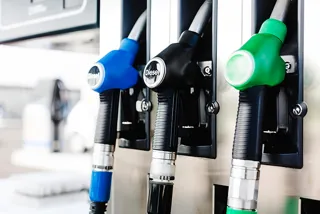A litre of petrol now costs less than £1 after three of the UK’s major supermarkets cut pump prices again due to the collapse in global oil markets.
Morrisons become the first major retailer to cut the price of petrol to below £1 per litre at all of its 337 filling stations, while Asda and Tesco quickly followed suit.
Drivers filling up at Morrisons are now paying a maximum of 99.7 pence per litre (ppl) for petrol and up to 104.7ppl for diesel.
It is the first time that petrol has been sold nationally for under £1 for four years, while UK drivers have only seen petrol below £1-a-litre once since the 2008-09 financial crisis.
Asda cut its pump prices to the same level and Tesco says from today (Tuesday, May 12) the cost of unleaded will be no more than 99.9ppl and 105.9ppl for diesel.
Ashley Myers, head of fuel for Morrisons, said: "This cut will help people who are travelling to work, those shopping for essentials, and those assisting the elderly and vulnerable."
The cost of oil collapsed to its lowest level in 21 years last month – down to just $13 on April 21 – as a result of demand disappearing in the wake of the coronavirus outbreak.
However, while this sent wholesale prices plunging still further in the month, some of the UK’s largest fuel retailers did not cut forecourt prices with so few people buying fuel in the first place.
The average price of diesel fell nearly 3 pence from 117.5p to 114.54p per litre (ppl) in April.
The RAC has suggested that, with easing of lockdown restrictions, there remains scope for a further 12ppl to come off April’s average prices of both petrol and diesel.
If fully reflected at the pumps, this would see unleaded down to an average price of 96ppl and diesel down to 102ppl.
RAC fuel spokesman Simon Williams paid credit to Morrisons for “taking the lead” and selling petrol and diesel at a “very fair price” that is much more reflective of what it is paying to buy the fuel in.
However, he said there is a “darker side” to any large price cuts.
“They heap yet more pressure on smaller independent fuel retailers, who in some cases are already fighting for survival as a result of the coronavirus outbreak."
He concluded: “It remains to be seen how long prices this low will persist for, with some early indications that wholesale petrol prices have started to rise as a result of the world oil price creeping up.”





















Login to comment
Comments
No comments have been made yet.